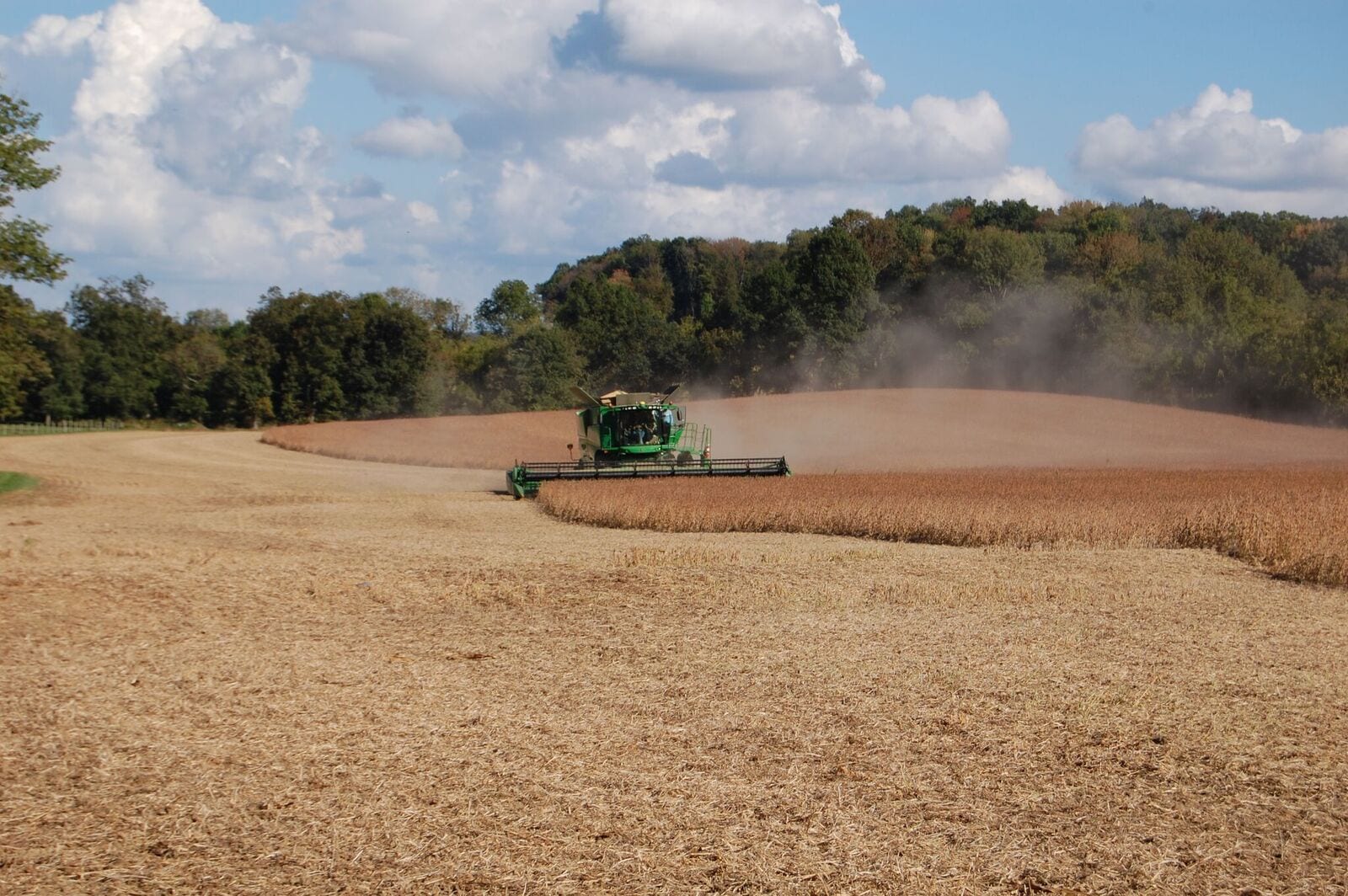Pennsylvania and Indiana Soybean Farmers Host International Soy Buyers for Sustainability Tour
- Category:
- General News
- Sustainability

Bill Beam, chairman of the Pennsylvania Soybean Board, welcomed a group of international soy buyers from Southeast Asia and Europe to his farm in Chester County, Pennsylvania to explain the practices he uses to ensure sustainability. A few days later, the same group visited Mike Starkey's farm in Brownsburg, Indiana. More than a dozen guests from Thailand, South Korea, Taiwan, the U.K., and Holland got a first-hand look at the sustainability of U.S. Soy.
Buyers of U.S. Soy are increasingly concerned about the sustainability of the products they buy, and the sustainability of U.S. Soy is an important differentiating factor. The international buyers’ tour, coordinated by USSEC, was designed to build a preference for U.S. Soy by demonstrating that the U.S. Soy crop is produced under a system of sustainability that includes everything from soil and water conservation to energy use.
Mr. Beam invited the international buyers to his fields as he outlined the sustainable farming practices implemented on his farm, including crop rotation and variety selection, the use of cover crops for water management, reduced and no-till, as well as pest management and nutrient management. Of particular interest to the group was the use of precision farming to increase on-farm efficiency. A number of the buyers took the opportunity to ride with Beam in his combine to see the yield mapping technology in action.

I see sustainability as a three-legged stool. To stay in business, I have to be profitable. Second, I have to be concerned with conservation – taking care of the soil that will take care of me. And third, I’m always looking to improve. U.S. farmers are external optimists, and constant improvement is something we’re always after – in our machinery, in our soil, and in the protein and quality of our beans.
-Bill Beam, Pennsylvania Soybean Farmer

Beth Sassaman, District Conservationist, U.S. Department of Agriculture Natural Resources Conservation Service (USDA-NRCS), from the Coatesville office and Jessica Gerhart, Executive Director of the Farm Service Agency (USDA), Chester-Delaware, outlined the services provided to farmers through the Conservation Technical Assistance (CTA) program, which provides voluntary conservation technical assistance in planning and implementing conservation systems. Del Voight, Penn State Extension educator and crop specialist, was also on hand to answer questions about the conservation and nutrient management plans used by the state’s soybean growers.

During their weeklong U.S. trip, the international buyers’ group spent time in Washington, D.C. at the office of the USDA National Resources Conservation Service (NRCS). Due to the variation of land and climate throughout the U.S., sustainability looks a bit different on every farm, so after their stop at Beam Farms, the group traveled to the Midwest.
There, the group visited Starkey Farms in Brownsburg, Indiana to see the sustainability practices on Mike Starkey’s farm before visiting the Indiana Soybean Alliance’s to hear about the state’s investment in sustainable soybean production.
According to the United Soybean Board (USB), based on existing aggregated data collected from farmers nationwide who participate in national conservation programs, currently, 98 percent of U.S. soybeans are certified sustainable.